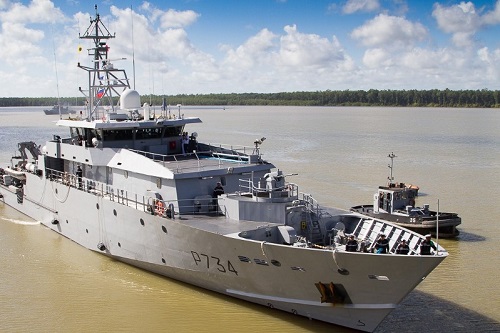MODF photo
By
Ricardo Swire
Caribbean islands are well known for pristine, expansive white sand beaches and a lack of adequate law enforcement resources to patrol territorial waters. Drug trafficking via high-speed boats has been a major regional issue. Introduction of the 10th European Development Fund in 2008 earmarked €10 million towards the CARICOM Secretariat’s battle against illegal drug supply. National internal security reports confirmed accessing this money has been problematic.
One CARICOM Implementation Agency for Crime & Security’s (IMPACS) strategic plan requested revision of Caribbean drug policy, in keeping pace with international trends. Previously South American “narcoplanes” airdropped waterproofed cocaine bundles, on select islands and in territorial waters, as a preferred trafficking method. CARICOM member the Dominican Republic (DR) repelled the drug plane infestation by introducing special “Super Tucanos” aircraft purchased from Brazil.
According to a senior DR Air Force representative implementation of the fast, manoeuvrable, turboprop, single engine planes significantly reduced the amount of South American drug aircraft that enter national airspace. Over the years US officials repeatedly pledged financial and technical assistance to Caribbean internal security agencies. The 2009 Caribbean Basin Security Initiative (CBSI) was one heralded American presidential commitment.
Washington’s overseas aid program was conceptualized to provide CARICOM law enforcement officers with training, plus improve internal security infrastructures and increase Caribbean community awareness of regional initiatives against drugs trafficking. Internal security records highlighted several US promises of direct grants that did not meet CARICOM recipients’ expectations. Counternarcotics intelligence files indicate that the Caribbean to South Florida cocaine corridor remains second most popular after Central America’s secret route to Mexico.
Caribbean intelligence data confirmed a trafficking shift to Organization of Eastern Caribbean States (OECS) members Anguilla, British Virgin Islands, US Virgin Islands, Puerto Rico, St Lucia, and Montserrat. St Lucia is classified “the vector” for South American cocaine transiting Martinique. Consignments depart the French Caribbean Island en route to metropolitan France and Europe. Clandestine activity that has attracted French Navy attention and influenced deployment of La Confiance, a twenty-four crew patrol cutter. The French naval resource patrol route takes it thru St Lucia from Thursday February 22, 2018 to Sunday February 25, 2018.
Ricardo Swire
Ricardo Swire is the Principal Consultant at R-L-H Security Consultants & Business Support Services and writes on a number of important issues.



No Comments Yet!
You can be first to comment this post!